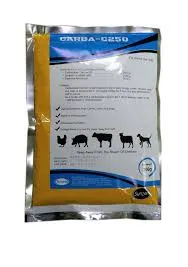- Afrikaans
- Albanian
- Amharic
- Arabic
- Armenian
- Azerbaijani
- Basque
- Belarusian
- Bengali
- Bosnian
- Bulgarian
- Catalan
- Cebuano
- Corsican
- Croatian
- Czech
- Danish
- Dutch
- English
- Esperanto
- Estonian
- Finnish
- French
- Frisian
- Galician
- Georgian
- German
- Greek
- Gujarati
- Haitian Creole
- hausa
- hawaiian
- Hebrew
- Hindi
- Miao
- Hungarian
- Icelandic
- igbo
- Indonesian
- irish
- Italian
- Japanese
- Javanese
- Kannada
- kazakh
- Khmer
- Rwandese
- Korean
- Kurdish
- Kyrgyz
- Lao
- Latin
- Latvian
- Lithuanian
- Luxembourgish
- Macedonian
- Malgashi
- Malay
- Malayalam
- Maltese
- Maori
- Marathi
- Mongolian
- Myanmar
- Nepali
- Norwegian
- Norwegian
- Occitan
- Pashto
- Persian
- Polish
- Portuguese
- Punjabi
- Romanian
- Russian
- Samoan
- Scottish Gaelic
- Serbian
- Sesotho
- Shona
- Sindhi
- Sinhala
- Slovak
- Slovenian
- Somali
- Spanish
- Sundanese
- Swahili
- Swedish
- Tagalog
- Tajik
- Tamil
- Tatar
- Telugu
- Thai
- Turkish
- Turkmen
- Ukrainian
- Urdu
- Uighur
- Uzbek
- Vietnamese
- Welsh
- Bantu
- Yiddish
- Yoruba
- Zulu
Dec . 04, 2024 14:33 Back to list
Top Treatments for Upper Respiratory Infections and Their Effectiveness
What is the Best Medicine for an Upper Respiratory Infection?
Upper respiratory infections (URIs) are among the most common ailments affecting millions of people around the world each year. These infections, which include the common cold, sinusitis, and other upper respiratory conditions, are usually caused by viral agents. Symptoms often include a runny or stuffy nose, sore throat, cough, sneezing, and general fatigue. While URIs typically resolve on their own, understanding the best medicine or treatment options can help alleviate symptoms and speed up recovery.
Understanding Upper Respiratory Infections
Before delving into treatment options, it's important to understand the nature of upper respiratory infections. Most URIs are viral and self-limiting, meaning they typically resolve within a week to ten days without medical intervention. Antibiotics, which are effective against bacterial infections, are not effective against viral infections and should not be used to treat URIs unless a secondary bacterial infection develops.
Over-the-Counter Medications
For symptomatic relief, several over-the-counter (OTC) medications can be beneficial
1. Decongestants These medications help relieve nasal congestion by shrinking blood vessels in the nasal passages. Common decongestants include pseudoephedrine (Sudafed) and phenylephrine. However, these medications may cause side effects like increased heart rate or insomnia, so individuals with preexisting conditions such as high blood pressure should consult a healthcare professional before use.
2. Antihistamines While often used for allergies, certain antihistamines can help relieve a runny nose and sneezing associated with URIs. Diphenhydramine (Benadryl) is an example, but it may cause drowsiness. Non-drowsy options like loratadine (Claritin) or cetirizine (Zyrtec) are also available for those needing to remain alert.
3. Cough Suppressants and Expectorants Cough medications can be categorized into suppressants, which help reduce the urge to cough, and expectorants, which thin mucus to make coughing more productive. Dextromethorphan is a common cough suppressant, while guaifenesin is an expectorant that helps relieve chest congestion.
4. Pain Relievers and Fever Reducers Nonsteroidal anti-inflammatory drugs (NSAIDs) such as ibuprofen (Advil, Motrin) or acetaminophen (Tylenol) can help alleviate fever, body aches, and sore throat associated with URIs. These medications can provide significant comfort during the duration of the infection.
what is the best medicine for an upper respiratory infection

Home Remedies
In addition to OTC medications, there are several home remedies that can provide relief from URI symptoms
- Hydration Staying well-hydrated helps thin mucus and keeps the throat moist. Warm beverages like herbal teas, broths, and honey with lemon can be especially soothing.
- Rest Adequate rest is crucial for the body to heal and combat the infection. Allowing the body to recover by getting enough sleep can significantly speed up recovery.
- Humidifiers Using a humidifier in your home can help keep the air moist, relieving congestion and soothing irritated nasal and throat tissues.
- Saline Nasal Sprays These sprays can help relieve nasal congestion and keep the nasal passages moist without the risk of dependency associated with some decongestant sprays.
When to See a Doctor
Most upper respiratory infections resolve on their own, but there are situations in which medical attention is necessary. If symptoms persist for more than ten days, worsen after initially improving, or are accompanied by high fever, severe headache, shortness of breath, or chest pain, it’s important to consult a healthcare provider. They can assess whether a bacterial infection has developed or if other underlying conditions may require treatment.
Conclusion
The best medicine for an upper respiratory infection primarily entails symptomatic relief through OTC medications and home remedies. With patience and self-care, most people recover from URIs without complications. Remember that it is always wise to consult with a healthcare professional if there’s any uncertainty about treatment options or if symptoms significantly worsen. By understanding the nature of URIs and the available treatment options, individuals can better manage their symptoms and aid in a quicker recovery.
-
Guide to Oxytetracycline Injection
NewsMar.27,2025
-
Guide to Colistin Sulphate
NewsMar.27,2025
-
Gentamicin Sulfate: Uses, Price, And Key Information
NewsMar.27,2025
-
Enrofloxacin Injection: Uses, Price, And Supplier Information
NewsMar.27,2025
-
Dexamethasone Sodium Phosphate Injection: Uses, Price, And Key Information
NewsMar.27,2025
-
Albendazole Tablet: Uses, Dosage, Cost, And Key Information
NewsMar.27,2025













